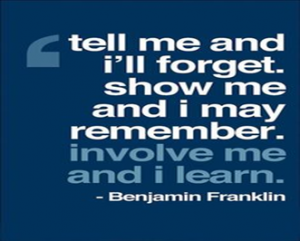
15 Jul UNDERSTANDING DYSLEXIA
A good way to understand dyslexia is to establish what it is NOT. It’s not a sign of low intelligence or laziness or not due to poor vision.
It’s a condition that affects the way the brain processes written and spoken language. Dyslexia is primarily associated with trouble in reading, but it can also affect writing, spelling and even speaking.
People with dyslexia can still understand complex ideas. Sometimes they just need more time to work or need a different way to process the information.
There are many effective teaching strategies and tools that can help your child.
Dyslexia is thought to have two types of cause;
- Language processing
- Visual processing
- However, emotional problems often arise because of it.
Dyslexia is regarded as a neurobiological condition that is genetic in origin. This means that individuals can inherit this condition from a parent and it affects the performance of the neurological system.
As researchers zero in on what causes dyslexia, they’re also learning how the brain can change. This concept is known as “neuroplasticity.” Studies show brain activity in people with dyslexia changes after they receive proper tutoring.
What does this mean for your child? With the right help, your child can make
real and lasting improvements in reading ability.
Many children have one or two of these issues on occasion. But kids with dyslexia have several of these issues, and they don’t go away.
Here are some signs to look out for:
- Has trouble recognizing the letters of the alphabet
- Struggles to match letters to sounds, such as not knowing what sounds b or h make
- Has difficulty blending sounds into words, such as connecting C-H-A-T to the word chat
- Has difficulty learning new words
- Has a smaller vocabulary than other kids the same age
- Has trouble learning to count or say the days of the week and has trouble remembering facts and numbers

- Has difficulty gripping a pencil
- Has difficulty using proper grammar
- Has trouble learning new skills and relies heavily on memorization
- Gets tripped up by word problems in math
- Has trouble following a sequence of directions and when the child is in High school;
- Struggles with reading out loud
- Doesn’t read at the expected grade level
- Has trouble understanding jokes or idioms
- Has difficulty organizing and managing time
- Struggles to summarize a story
- Has difficulty learning a foreign language
It’s not unusual for kids to be diagnosed with dyslexia and another condition. It’s is often referred as co-mobidity.
Here are some conditions that can coincide with dyslexia :
Dyscalculia
Mathematical learning difficulties; which is having difficulty in
- counting backwards
- sense of number and estimation.
- remembering ‘basic’ facts.
- lack of recall, other than to use counting
- understanding place value
- answers that are obtained are right or nearly right
- perform calculations
- mathematical procedures
- mental arithmetic skills
Dysgraphia
Dysgraphia is a condition that causes trouble with written expression. Has a difficulty in;
- shape-discrimination and letter spacing
- organizing words on the page from left to right
- writing on a line and inside margins
- reading maps, drawing or reproducing a shape
- holding a pencil correctly, tracing, cutting food, tying shoes, doing puzzles, texting and keyboarding
- getting ideas down on paper quickly
- understanding the rules of games

- following directions
- reading his own writing
- Gets a tired or cramped handed when he writes.
- Doesn’t know how to use punctuation
- Writes sentences that “run on forever”
- telling a story and may start in the middle
- Leaves out important facts and details, or provides too much information
- Writes jumbled sentences
- Never gets to the point, or makes the same point over and over.
References:
https://dyslexiaida.org/dyslexia-basics/
https://www.undeerstood.org/en/learning


Sorry, the comment form is closed at this time.